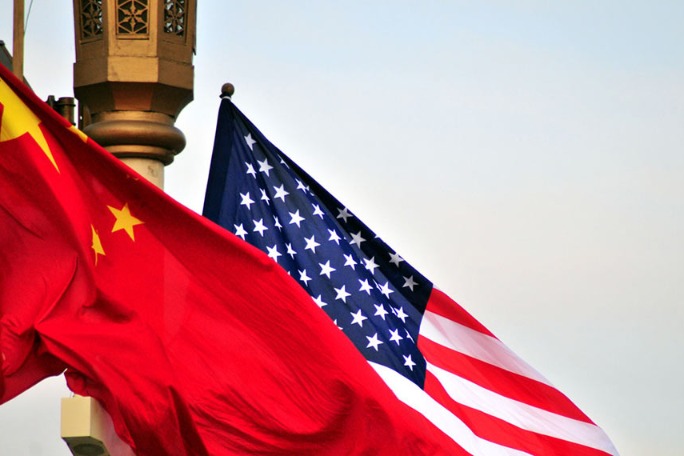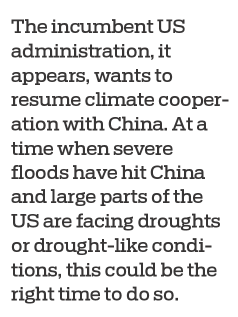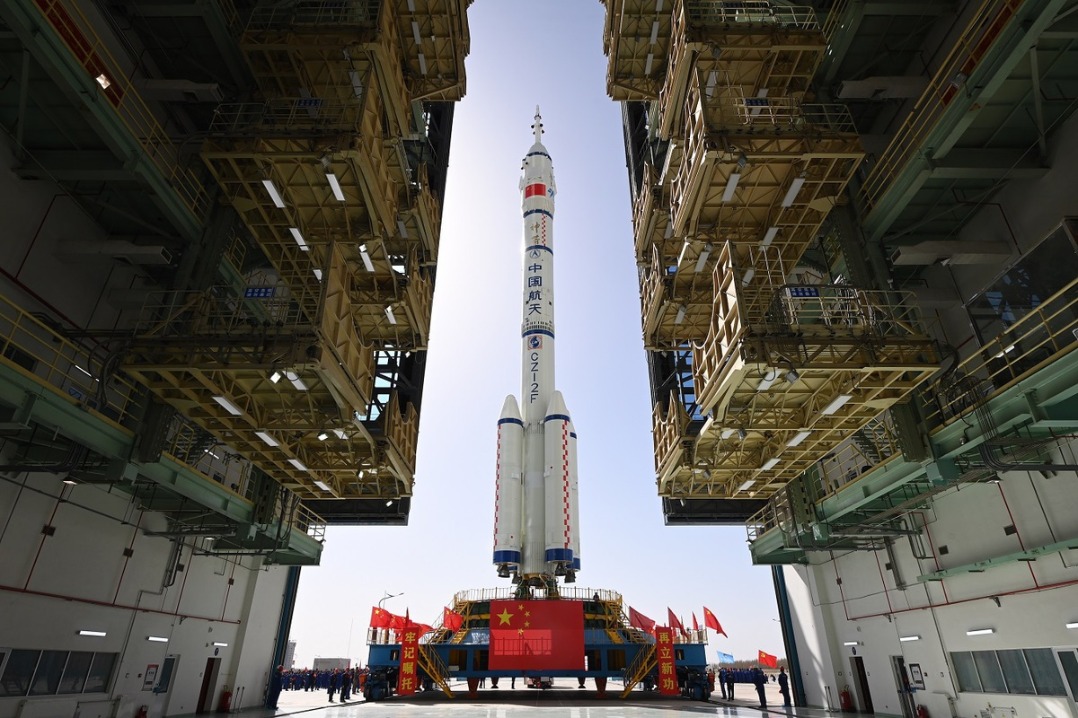Sherman visit a trial balloon for future actions
By Wang Wei | China Daily | Updated: 2021-08-07 09:12

US Deputy Secretary of State Wendy Sherman's visit to China to hold talks with State Councilor and Foreign Minister Wang Yi and Vice-Foreign Minister Xie Feng in Tianjin could be seen as another step taken by the Joe Biden administration to put bilateral relations back on the right track.
Before Sherman landed in China late on July 25, White House officials told reporters that she will convey to the Chinese officials at the July 26 meetings the need for "guardrails and parameters" for US-China ties, and prevent the already sour bilateral relations from worsening further.
Her separate meetings with Wang and Xie were widely considered a "continuation" of the China-US dialogue at Anchorage, Alaska, on March 18. And just like in Alaska, the Tianjin meeting was candid and harsh in tone, albeit less combative. The US State Department later said "the Deputy Secretary raised concerns about a range of PRC actions that run counter to our values and interests and those of our allies and partners, and that undermine the international rules-based order".
On the part of China, Wang emphasized the "three bottom lines" that the United States should respect while dealing with China. In general, Sherman agreed to Wang's "conditions".
As for specific issues, Xie proposed "two lists" expecting the US administration to respond constructively. But Sherman didn't respond to the lists-at least not at their meeting-perhaps because of political considerations.
Given the bipartisan anti-China sentiment in Washington, the Biden administration is hesitant to change or reverse the anti-China policies implemented by previous US president Donald Trump. So far, the Biden administration has not given any indication of withdrawing the punitive tariffs Trump imposed on Chinese goods or annulling the offensive visa policy toward Chinese citizens.
Worse, the Biden administration has not only inherited but also is enthusiastically following Trump's "tough way" to "out-compete" China. Also, the incumbent administration attaches great importance to talking or negotiating with China from a "position of strength" in line with Trump's slogan "peace through strength". In effect, the Biden administration believes in the old US logic of "do-as-I-say": that is, other countries should serve the US' interests without expecting anything in return.
The Biden administration, it seems, is no different from the preceding administration. It has not only maintained an antagonistic stance toward China, as the bipartisan anti-China sentiment on Capitol Hill shows, but also encouraged its diplomats to challenge their Chinese counterparts on every issue. As a result, verbal confrontations marked both the Alaska and Tianjin talks.
"The US and China fought a war of words Monday as each side worked to set the narrative after their latest testy senior-level meetings", according to Nicole Gaouette and Kylie Atwood at the CNN.
Understandably, without being empowered by President Joe Biden, even senior US diplomats such as Sherman cannot make any concrete commitment. No wonder Sherman told the Associated Press after the Tianjin talks that: "This is a process where we've taken another step. We came to these conversations not expecting any specific outcomes."
True, Sherman's visit to China failed to meet US foreign policy circles' expectation of Biden meeting President Xi Jinping on the sidelines of the G20 Summit in Italy in October-the first possible one-on-one meeting between the two leaders since Biden became US president.
Yet Sherman's visit to China was not a failure. In fact, White House spokesperson Jen Psaki said:"The prospect of a meeting between Biden and Xi did not come up during Sherman's meetings, though she added that she expects there will be some opportunity to engage at some point."
The meetings between Sherman and Wang and Xie should not be considered a lost effort. Instead, they could be seen as Sherman sending out trial balloons for future actions. We also need to realize that the damage Trump has done to Sino-US relations is so deep-rooted in some areas that only the removal or reversal of those policies can bring bilateral ties back to the right track, and that cannot be done in one meeting between high-ranking diplomats. Only the US president can do so.
The Trump administration created too many hurdles in bilateral ties. For instance, China and the US had established a strong cooperation mechanism to fight climate change. If not for Trump's "America first" policy, the two sides would have continued to work together and helped resolve at least some international climate issues.
The incumbent US administration, it appears, wants to resume climate cooperation with China. At a time when severe floods have hit China and large parts of the US are facing droughts or drought-like conditions, this could be the right time to do so. It's never too late.
The author is a research fellow at the Institute of American Studies, Chinese Academy of Social Sciences.
The views don't necessarily reflect those of China Daily.























